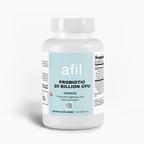Oat Flour (Without Gluten)
Oat flour, made from ground oats, may cause sensitivities due to avenin, FODMAPs, or gluten contamination. Avoid it, try alternatives like almond or rice flour, use probiotics or enzymes for support, and retest in 6–8 weeks.
🌾 What is Oat Flour?
Oat flour is a finely ground flour made from oats. It’s commonly used in baking and cooking, especially for gluten-free recipes, due to its mild flavor and versatility.
🤔 Why Do I Have a Sensitivity to Oat Flour and Its Components?
Sensitivity to oat flour might occur for several reasons:
- Protein Sensitivity: Oats contain avenin, a protein that some people have difficulty digesting.
- Cross-Contamination: Oat flour can sometimes be contaminated with gluten during processing, which may trigger reactions.
- FODMAPs: Oats contain fermentable carbohydrates that can cause digestive discomfort in some individuals.
- Processing Effects: The way oats are processed into flour can alter their structure, making them harder to digest for certain people.
🛠️ What Can I Do About It?
Here are steps you can take to manage your sensitivity to oat flour:
- ❌ Avoid Oat Flour: Eliminate oat flour from your diet and check labels for hidden oats in processed foods.
- 🍚 Try Alternatives: Substitute oat flour with almond flour, coconut flour, rice flour, or quinoa flour.
- 🔍 Read Labels: Choose certified gluten-free oat flour if cross-contamination is a concern.
- 📝 Track Reactions: Keep a food diary to monitor symptoms and triggers.
- 📅 Retesting: After eliminating oat flour, you can get retested in 6–8 weeks to reassess your sensitivity.
💊 Which Supplements Can Help?
-
💊 Which Supplements Can Help?
To support your health while managing arrowroot flour sensitivity, consider:
- 🌟 Digestive Enzymes: Help break down starches and ease digestion.
- 🦠 Probiotics: Maintain gut health and support a balanced microbiome.
- 🛡️ L-Glutamine: Strengthens the gut lining and reduces symptoms like bloating or cramping.
- ⚡ Magnesium: Eases digestive discomfort and supports overall digestion.
- 💧 Electrolytes: Replenish minerals if sensitivity symptoms lead to dehydration.
🤔 Differences Between Oat Flour And Other Flours
You may tolerate other flours but react to oat flour for these reasons:
- 🌱 Unique Protein (Avenin): Oats contain avenin, which is different from the proteins found in other flours.
- ⚙️ Processing Differences: Oat flour production may alter its digestibility.
- 📊 FODMAP Levels: Oat flour may have a carbohydrate profile that triggers symptoms more than other flours.
- 🔗 Cross-Contamination: Gluten contamination in oat flour might be causing your symptoms.
🍽️ Popular Dishes That Involve Oat Flour
- Oat Flour Pancakes
- Oat Flour Cookies
- Oat Flour Bread
- Oat Flour Muffins
- Oat Flour Waffles
- Oat Flour Cakes
🍽️ Alternatives (If Tolerated)
- Almond flour
- Potato flour
- Cassava flour
.png?width=100&height=75&name=AFIL%20Logo%20(1).png)



